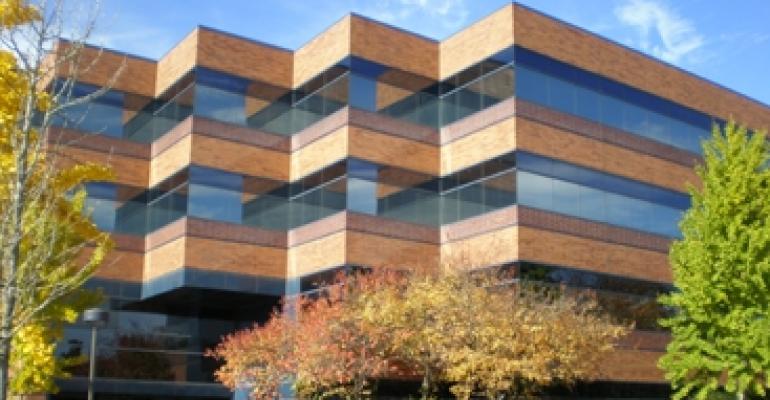
Property owners seeking a buyer to take a distressed office building off their hands should consider marketing to corporate space occupiers as well as conventional investors.
In four recent transactions negotiated by Newmark Knight Frank, that strategy produced the best returns available for the sellers and illustrated the impact that corporate users are having on the investment market.
To market a property successfully to these hybrid user-investors, it is critical to appreciate how a space occupier’s motivation to buy differs from a traditional investor. User-investors will consider locations that may not appeal to conventional investors, in part because a user is less concerned about the need to attract and retain tenants.
Acquisitions by corporate users are more likely to be motivated by a desire to drastically reduce occupancy costs. And the net cost of occupying an asset purchased at today’s low prices is far lower than the cost of leasing space, even if the buyer pays a premium for the asset.
In recent transactions, office user-investors have demonstrated a willingness to pay more for distressed assets than conventional investors are willing to pay.
In addition, this emerging force of user-buyers is willing to invest in facilities that exceed the buyer’s occupancy requirements. A corporate buyer will want to occupy a portion of the property, and can lease out unwanted space.
Dissecting the deals
Newmark Knight Frank Capital Group recently brokered four sales that illustrate this trend. Together, the transactions encompassed more than 1 million sq. ft.
On behalf of a lender, Newmark Knight Frank sold a Class-A, 432,000 sq. ft. office complex at 290 Davidson Ave. in Somerset, N.J. to SHI International Corp., a software and hardware reseller.
SHI concluded correctly that the asset could be acquired for a price equal to renting the same property for two years at its current lease rate. The buyer decided to occupy half of the complex and rent the balance to a tenant or tenants, a move clearly fitting the profile of a user-investor.
In Ridgefield Park, N.J., Daekyo America bid the top price to buy the former North American headquarters of Samsung Electronics at 105 Challenger Road.
The sale generated a premium of $25 per sq. ft. over the recent sale price of an adjacent office building, which sold to a traditional investor. Daekyo plans to occupy several floors and lease the balance of the 150,000 sq. ft., nine-story building.
The former Linens 'n Things headquarters in Clifton, N.J., sold to yet another user-investor, New Jersey Physicians. The medical practice group plans to occupy 60% of the asset and lease the balance.
Finally, in a transaction currently under contract and slated to close shortly, a corporation with a 30,000 sq. ft. occupancy requirement has agreed to buy and move into a 320,000 sq. ft., Class-A office complex in the New York metro area. Interestingly, the complex is already 90% occupied.
Corporations are flush with cash
This user-investor trend reflects corporate profits at historically high levels in some sectors. Many companies have generated these healthy profits by becoming more efficient, learning to utilize technology, reducing the number of employees, or transferring jobs to lower-cost regions.
Such efficiency has the unpleasant side effect of reducing job growth and, by extension, slashing demand for office space, while contributing to the currently high vacancy rates.
But many corporations are now in a unique position to take advantage of the depressed office building values and vacancy rates they helped to create.
Corporations have seldom seen such favorable opportunities to buy commercial real estate. Current sales of vacant office buildings in suburban markets indicate values of approximately 15% to 25% of replacement cost.
This historically low valuation is a function of depressed rental rates, weak demand for space, and the need for capital improvements in many older buildings.
Assuming that replacement cost is $250 per sq. ft., an investor can now acquire vacant office buildings for $35 to $60 per sq. ft. By comparison, tenants in suburban markets typically pay $20 to $35 per sq. ft. per year to lease office space.
For nimble and well-capitalized users able to close a purchase, the opportunity to acquire a building for a little more than one year’s rent is very compelling indeed.
Capitalizing on the trend
The opportunity for corporate users to reduce occupancy costs by buying a space makes such a persuasive case that Newmark Knight Frank Capital Group has modified its typical sales program to include corporate tenants. This is in addition to the firm’s marketing of properties to traditional private and institutional investors.
In the past, the team typically direct-marketed each investment property to more than 4,000 investors. By including corporate tenants, the buyer pool has now increased to more than 8,000 potential investors.
The bottom line is that while the current market is challenging for suburban real estate owners and their lenders, compelling opportunities await the astute, well-capitalized corporate user-investor.

Matthew J. Schnürr is a principal of Newmark Knight Frank Capital Group in Rutherford, N.J. He can be reached at [email protected] or (201) 504-5134.

